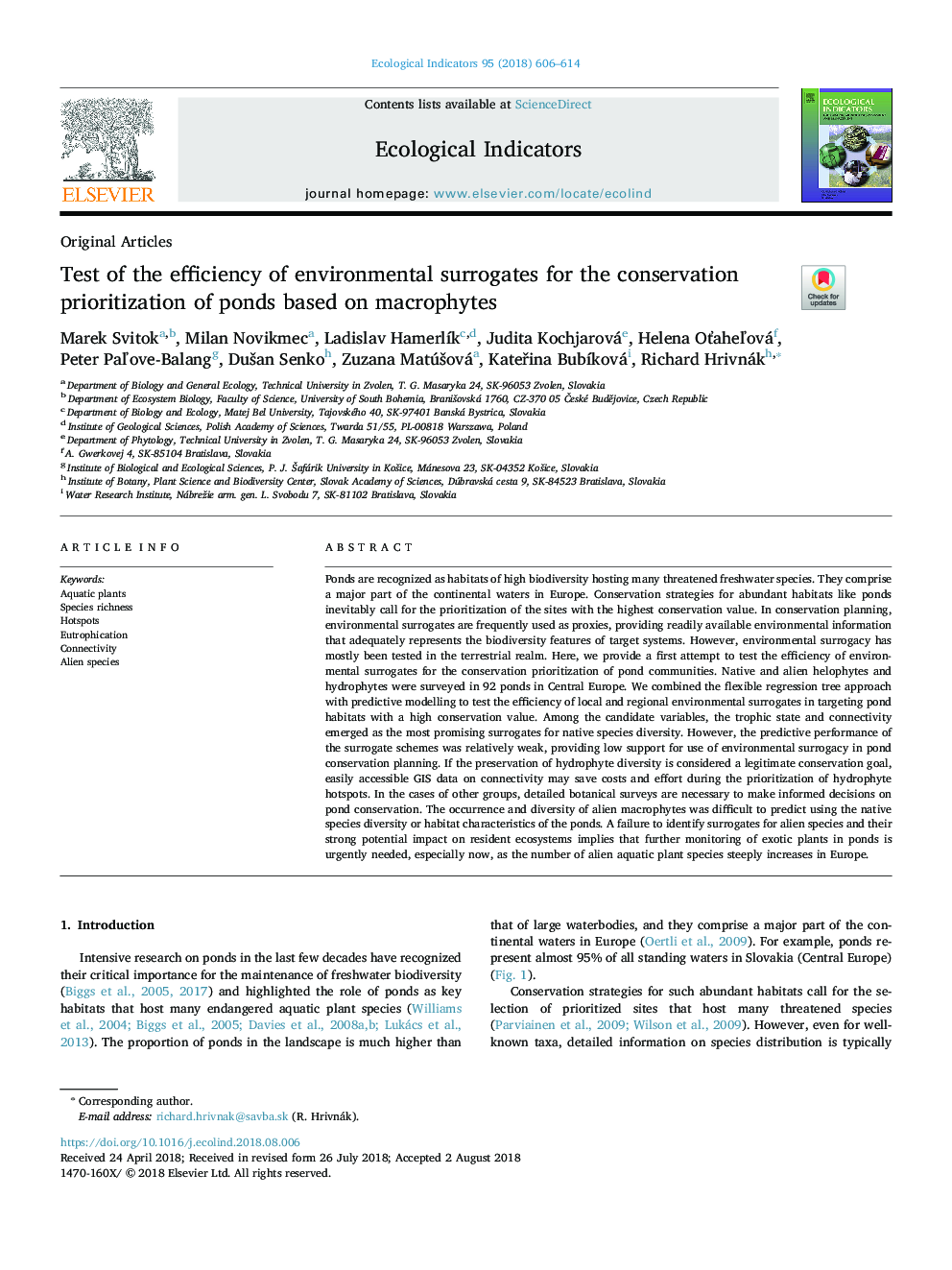| Article ID | Journal | Published Year | Pages | File Type |
|---|---|---|---|---|
| 8845007 | Ecological Indicators | 2018 | 9 Pages |
Abstract
Ponds are recognized as habitats of high biodiversity hosting many threatened freshwater species. They comprise a major part of the continental waters in Europe. Conservation strategies for abundant habitats like ponds inevitably call for the prioritization of the sites with the highest conservation value. In conservation planning, environmental surrogates are frequently used as proxies, providing readily available environmental information that adequately represents the biodiversity features of target systems. However, environmental surrogacy has mostly been tested in the terrestrial realm. Here, we provide a first attempt to test the efficiency of environmental surrogates for the conservation prioritization of pond communities. Native and alien helophytes and hydrophytes were surveyed in 92 ponds in Central Europe. We combined the flexible regression tree approach with predictive modelling to test the efficiency of local and regional environmental surrogates in targeting pond habitats with a high conservation value. Among the candidate variables, the trophic state and connectivity emerged as the most promising surrogates for native species diversity. However, the predictive performance of the surrogate schemes was relatively weak, providing low support for use of environmental surrogacy in pond conservation planning. If the preservation of hydrophyte diversity is considered a legitimate conservation goal, easily accessible GIS data on connectivity may save costs and effort during the prioritization of hydrophyte hotspots. In the cases of other groups, detailed botanical surveys are necessary to make informed decisions on pond conservation. The occurrence and diversity of alien macrophytes was difficult to predict using the native species diversity or habitat characteristics of the ponds. A failure to identify surrogates for alien species and their strong potential impact on resident ecosystems implies that further monitoring of exotic plants in ponds is urgently needed, especially now, as the number of alien aquatic plant species steeply increases in Europe.
Related Topics
Life Sciences
Agricultural and Biological Sciences
Ecology, Evolution, Behavior and Systematics
Authors
Marek Svitok, Milan Novikmec, Ladislav HamerlÃk, Judita Kochjarová, Helena OÅ¥aheľová, Peter Paľove-Balang, DuÅ¡an Senko, Zuzana MatúÅ¡ová, KateÅina BubÃková, Richard Hrivnák,
